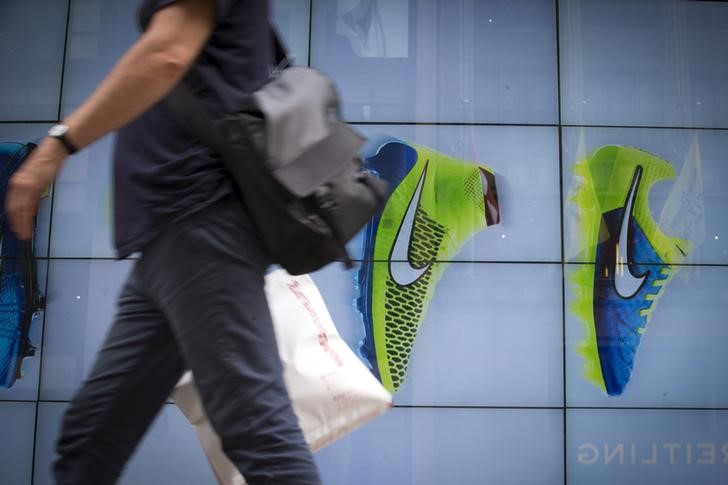This post was originally published on this site
https://i-invdn-com.investing.com/trkd-images/LYNXMPEJ8S0JU_L.jpg
(Reuters) – Nike (NYSE:NKE) shares surged about 10% in premarket trading on Friday as the company further trimmed its inventory ahead of the all-important holiday shopping season and forecast improved second-quarter gross margin due to fewer discounts.
The world’s largest sportswear maker faced bloated inventories as demand waned in the United States due to lower discretionary spending, as well as lingering supply-chain glitches. Its shares have declined about 23% so far in 2023.
In the first quarter, inventory levels fell to $8.7 billion from $9.66 billion a year earlier. The company estimated a 100 basis point boost to current-quarter gross margin while maintaining its annual forecasts.
Nike’s expectations for improving markdowns “is very encouraging, considering the overall challenging promotional environment for the footwear industry…,” said Drake MacFarlane, research analyst at M Science.
Rivals including Adidas (OTC:ADDYY) and Puma have also struggled with weakening U.S. demand and slower-than-expected recovery in China, where local brands are doubling down on efforts to take market share.
BMO analyst Simeon Siegel said investor sentiment had grown “too negative” owing to demand concerns in China and North America, leading to expectations of a forecast cut.
Nike saw higher uptake of its statement leggings, thanks to products like Zenvy, Go, and Universa in the quarter, TAG analysts said, adding the company’s back-to-school business also outpaced the industry broadly in North America.
The company’s shares were trading higher at $98.74. The jump also lifted shares of Adidas, Puma and JD (NASDAQ:JD) Sports between 5%-7%.
Still, sales in North America remained under pressure, leading to a slight miss on first-quarter revenue.
“We also worry about the US consumer getting materially worse, especially the lower end consumer, as gas prices rise, student loan payments resume, and excess savings dwindle,” said Piper Sandler analyst Abbie Zvejnieks.

